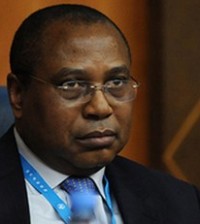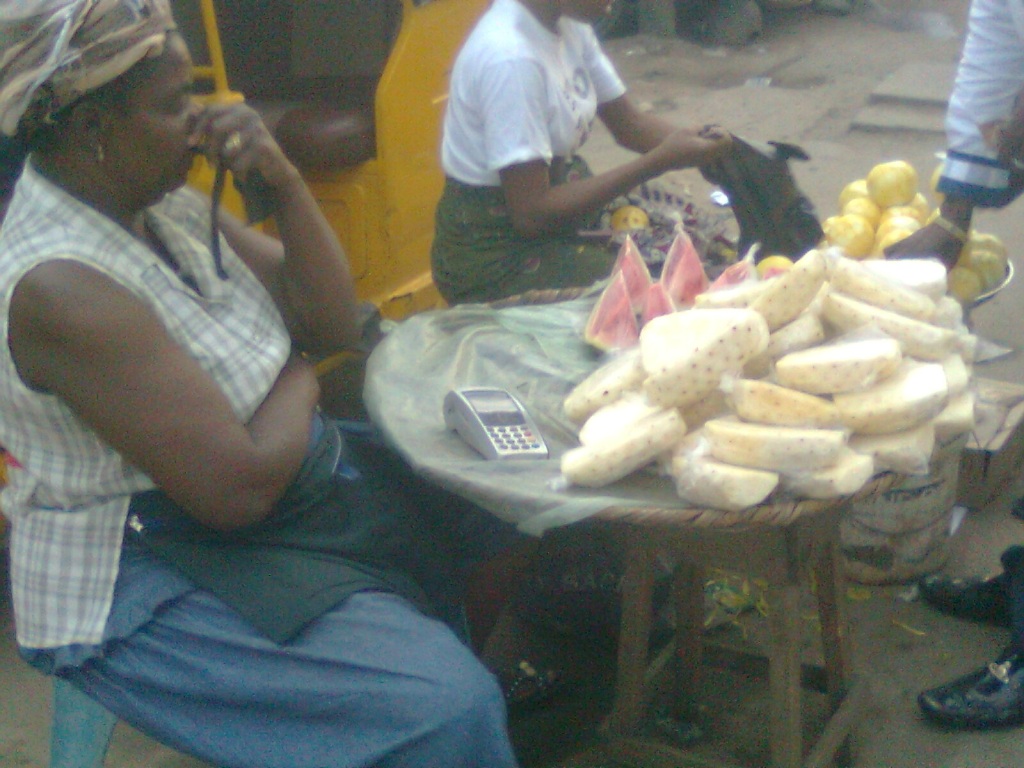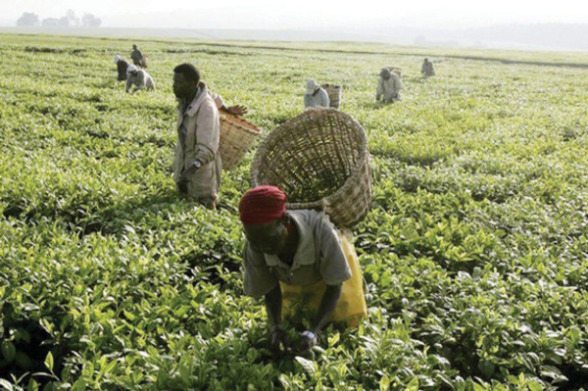Former Mercenary Signs $850m Nigerian Oil Deal
Heritage, on its website, attempts to distance its chief executive from his past by stating that he severed relations with his mercenary and security contacts and associates since 1998, but the British media still link him with old associates in the warring business.
The Sunday Times once put the Buckingham, who owns 33 per cent shares in Heritage, “at the epicentre of the trade in arms and soldiers… into war-torn African states.”
Buckingham, a former diver and British SAS officer, is linked to Simon Mann, a former Scots Guard, who was arrested, tried and jailed for leading the attempted “Wonga coup” to depose dictator, Teodoro Obiang Nguema Mbasago of Equatorial Guinea. Mann was sentenced to a 34-year-jail sentence in Equatorial Guinea on July 7, 2008, for the 2004 failed coup but was granted presidential pardon in November 2009 on humanitarian grounds.
Buckingham and Heritage are at pains to play down his relationship with Mann and the company’s website is quick to point out that its CEO has not had any kind of contact with an internationally acclaimed mercenary since 2000. That is understandable.
BUCKINGHAM, Mann and Lt-Col Eeben Barlow, a former Apartheid-era member of the South African Defense Forces, were founding partners in Executive Outcomes, a crack team of commandos made up of mainly former members of the South African Defense Force, which they used in fighting UNITA rebels in Angola.
Buckingham had become an adviser to the Angolan government under Jose Eduardo dos Santos around 1989 and helped the Angolan ministry of oil set up Sonangol, an oil and gas exploration and production company. He, in turn, set up Heritage in 1992 and his company and Sonangol held oil-prospecting business.
In 1993, communist UNITA rebels overran Angola, taking over oil operations, including Heritage’s oil interest in the country. Buckingham teamed up with Mann and Barlow, who had founded Executive Outcomes in 1989, to use the mercenary outfit to fight the rebels and retrieve his oil interests.
But Buckingham had direct involvement in mercenary activities in other parts of Africa, including Sierra Leone. In 1995, that country’s government contracted Executive Outcomes to help train its army and fight the RUF forces.
Buckingham became a principal figure in another mercenary outfit, Sandline, founded in 1996 by Tim Spicer, a retired British colonel, which was hired to organise a counter coup against soldiers who toppled the government of president Ahmad Tejan Kabbah of Sierra Leone. Sandline was allegedly contracted for the job by Indian financier, Rakesh Saxena, in return for diamonds exploration permits.
Sandline is notorious for breaking a United Nations arms embargo on Sierra Leone with the tacit support of the British government. That scandal implicated the Foreign Office in arms sale manages by Sandline and Executive Outcomes, two companies that shared offices in 535 King’s Road, London.
Sandline was also engaged by the government of Papua New Guinea to suppress the Bougainville Revolutionary Army, which was seeking independence from the country. An enquiry by the Papau New Guinea commission of enquiry into the mercenary group’s contract later determined that Buckingham and Spicer were the chief controllers of Sandline.
Sandline was dissolved in 2004 while Executive Outcomes suffered the same fate in 2009.
Another of Buckingham’s business dealings in Africa that went awry concerns diamond mining in Namibia. The mercenary-turned oil magnate as CEO of Sky Gem, a mining company, got diamond prospecting rights for the Neu Schwaben from the Namibian government. The businessman was accused of forcefully ejecting over 1,000 small-time miners who had been operating on the farm for years.
Although Heritage claims that Buckingham severed links with Mann in 2000, Hansard Trust Company Ltd and Hansard Management, two companies, which both have shares in four of the companies in the Heritage Group have been linked to Logo Limited.
Logo Limited is the company used by Mann in buying military equipment and ammunition and paying mercenaries, and it shared offices with the Hansard companies, St Peter Port as late as 2009.
In 2007, The Observer of London said of Executive Outcomes and Sandline: “They are the advance guard for major business interests engaged in a latter-day scramble for the mineral wealth of Africa (including) oil, gold and diamond-mining ventures… and offshore financial management services.”
Investigations show that before its deal with Shoreline, Heritage had made spirited efforts for years to find an investment inroad into Nigeria. In fact, as far back as 2003, the company was already sending representatives the country to prospect for investment opportunities.
Sources said that a representative of Heritage approached a Nigerian broker in November 2003, asking for opportunities in oil and gas, refineries as well as other business areas.
The source said that the representative also told the agent that Buckingham was interested in “military business.” Asking for contacts in the military, Buckingham’s man said that although he no longer had military affiliations, one of Buckingham’s companies still owned two Russian MI24 Helicopter Gunships, the type used by the Nigerian military, located in Australia and in good condition and which he was willing to sell to an interested buyer in Nigeria.
However, the man who first brought Heritage and Buckingham into Nigeria is Folorunso Okenla, former Green Eagles player. Okenla disclosed that he got to know of Heritage’s good records in Uganda and contacted Buckingham to impress on him that he was not yet a big player if he wasn’t doing business in Nigeria.
Subsequently, Okenla’s company, Haoni Oil and Gas, partnered with Heritage in the 2005 bidding round in Abuja but failed.
“I brought Heritage into Nigeria” Ayoola told our reporter, adding, “what we were looking at was to be the local partner to Heritage, which was already a big oil industry player in Uganda”
“Our first business relationship with Heritage was in 2005 when Haoni Oil and Gas partnered with them during the 2005 bidding round in Abuja but we did not succeed,” the ex–footballer-turned businessman stated.
Okenla also said that the two companies kept exploring business opportunities together until about two years ago. He, however, claimed that he was not aware of Heritage’s acquisition of OML 30 but stated that after he got the foreign oil giant interested in prospecting business in Nigeria, other companies might have approached it with a better deal.
Okenla admitted he did not do much due diligence on the businessman and denied knowing about Buckingham’s mercenary or military past, insisting that he only knew about him doing good oil business in Uganda.
Apart from Haoni, other companies that Heritage explored business relationships with in Nigeria are Hicog Oil and Gas, Eurasia Limited and ENP Limited.
HERITAGE’s new deal in Nigeria means that it takes over 45 per cent of OML 30 with eight producing fields, some 200 wells, along with associated infrastructure, which includes a segment of the 850,000 bopd capacity Trans Forcados pipeline.
The acquisition, according to a statement by Heritage, is being financed by a $550 million secured bridge finance facility provided by Standard Bank of South Africa and a $370 million underwritten rights issue sponsored by JP Morgan Securities Limited.
Kola Karim, CEO of Shoreline Power Resources, expressed excitement at the acquisition.
“Taking us into the upstream oil and gas sector at such a significant time when the Nigerian government is promoting active participation from indigenous companies, Shoreline, along with Heritage’s strong technical team and upstream experience will become one of the leading indigenous oil producing companies in Nigeria. This will strengthen our existing network of relationships with the local communities, local government and authorities in the oil producing areas of Nigeria,” Karim as was quoted as saying.
Concerning the acquisition, Buckingham said in a statement, “The acquisition of. OML 30 (the oilfield assets) is transformational for Heritage, providing a material change in production and reserves whilst pursuing our strategy of generating shareholder value.”
“Heritage is very excited to be participating in the development of OML 30 and entering at an attractive valuation. We look forward to continuing to build local relationships and partnerships with the communities in the delta region and creating a platform to build a substantial presence in Nigeria.”
Attempts to speak to Buckingham were unsuccessful. When our reporter called Paul Atherton, Heritage’s Chief financial officer in London, last Thursday, asked for a repeat call the next morning through his official phone. However, when our reporter called the given number and asked to speak to Atherton, he was told by a female voice that it was a wrong number.
Atherton has also not replied the mail sent to him asking questions about Heritage’s oil deal in Nigeria or fears about Buckingham’s past, which could be exploited in a country currently under very hostile environment.
The acquisition of OML 30 is expected to boost Heritage’s net production significantly from 605bpd to 11,650bpd.








